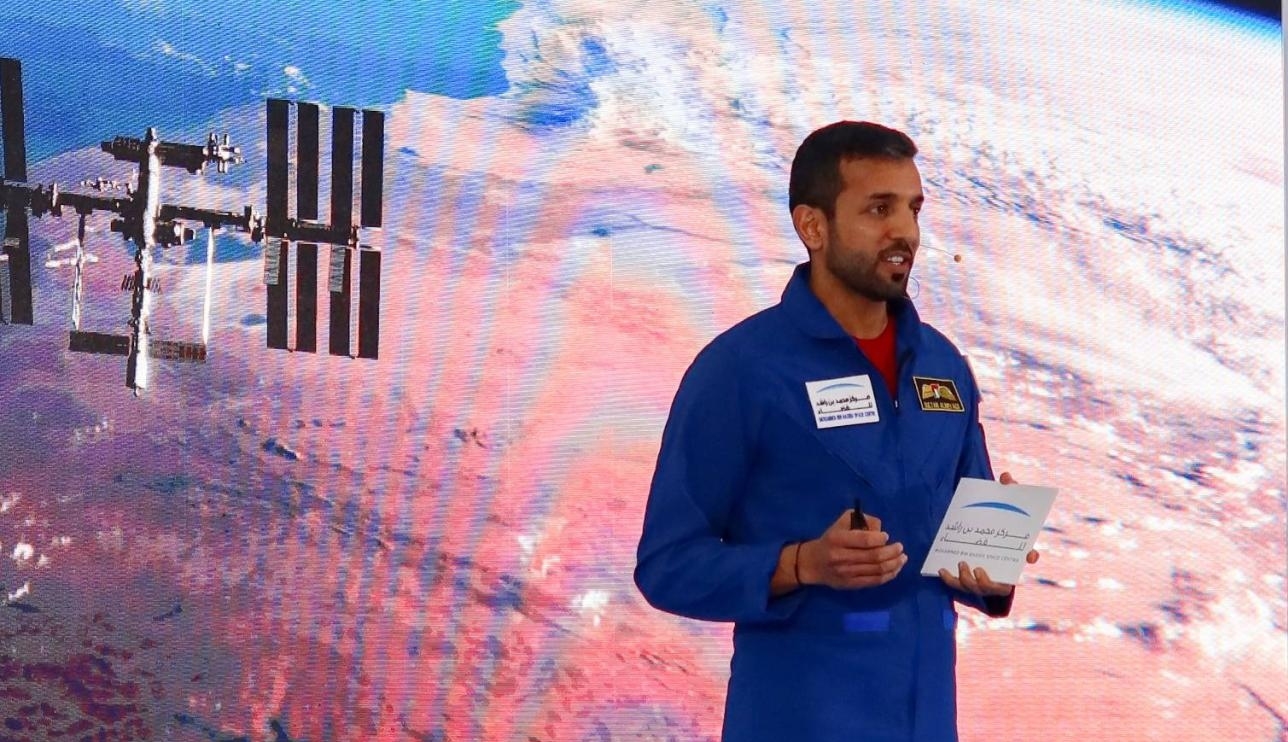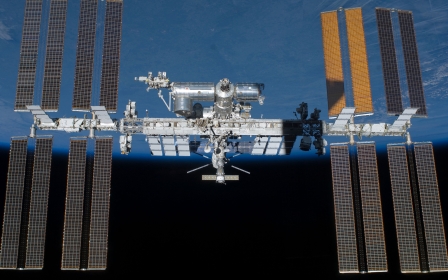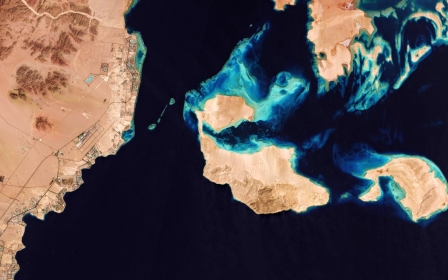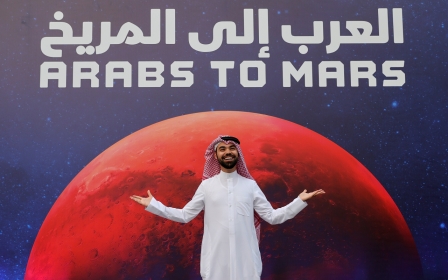Ramadan in space: Emirati astronaut weighs up ways to fast

Emirati astronaut Sultan al-Neyadi is considering the ways he will fast from dawn to sunset while in orbit during the holy month of Ramadan.
The 41-year-old astronaut, nicknamed the Sultan of Space, will blast off on 26 February for the International Space Station (ISS) aboard a SpaceX Falcon 9 rocket.
The month of Ramadan, which will fall during his six-month journey, between March and April, is a challenge Neyadi is planning for.
'On average, there are 16 sunrises and sunsets daily... When do you start and break your fast?'
- Sultan al-Neyadi, Emirati astronaut
"The ISS travels quickly... meaning it orbits around the Earth in 90 minutes," he told reporters in Dubai. "On average, there are 16 sunrises and sunsets daily... When do you start and break your fast?"
Neyadi plans to stick to the GMT time used on the ISS.
New MEE newsletter: Jerusalem Dispatch
Sign up to get the latest insights and analysis on Israel-Palestine, alongside Turkey Unpacked and other MEE newsletters
"I will prepare for the month of Ramadan with the intention to fast," he said.
Islamic laws permit those who are on long-distance journeys or are unwell to abstain from fasting.
Neyadi, who served in the Emirati military for 20 years, is the second astronaut from the United Arab Emirates (UAE) to travel to space after Hazzaa al-Mansoori's eight-day mission in 2019.
He studied electronics and communications engineering in Britain and then completed a PhD in data leakage prevention technology at Griffith University in Australia.
The astronaut said six months "may seem like a long time, but I don't mind because the schedule is packed."
He will be studying the impacts of microgravity on the human body in preparation for future missions to the Moon and Mars.
The UAE is a newcomer to the world of space exploration but is quickly making its mark.
In March 2021, it sent an unmanned spacecraft to Mars, the Arab world's first interplanetary mission, and last year sent a rover to the Moon.
Neyadi said he was "happy" to embark on the mission and would take along "pictures of my family, maybe some toys that belong to my children".
"I will also take my jiu-jitsu uniform because of my love for the sport," he added.
Middle East Eye delivers independent and unrivalled coverage and analysis of the Middle East, North Africa and beyond. To learn more about republishing this content and the associated fees, please fill out this form. More about MEE can be found here.




